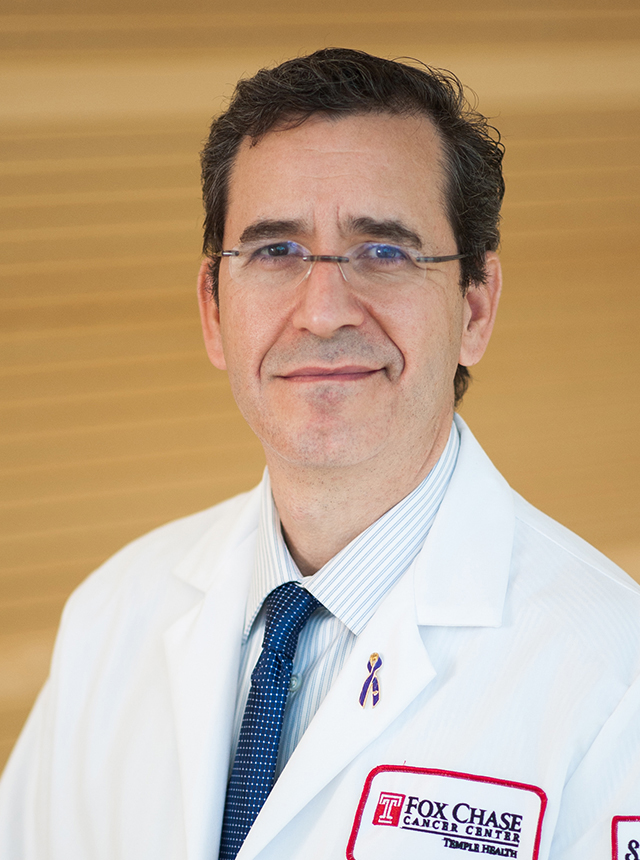PHILADELPHIA (January 22, 2016) – A multidisciplinary team of physicians from Fox Chase Cancer Center – Temple Health and the Temple University School of Medicine has compiled a comprehensive review of recent advances in the understanding, diagnosis, and treatment of bile ducts cancers (or cholangiocarcinomas). The review is published in the January 22nd issue of Cancer.
Cholangiocarcinoma is the second most common primary hepatic tumor and accounts for about 3 percent of all gastrointestinal cancers worldwide, with 5,000 deaths in the U.S. per year attributed to the disease. Although the highest incidence rates have been reported in Thailand, China, and other parts of Asia, recent reports indicate that the incidence may be increasing in the U.S. In fact, intrahepatic cholangiocarcinoma became the leading cause of primary liver tumor-related deaths in the U.S. over the past few decades, according to the review.
Cholangiocarcinoma is a disease that primarily affects middle-aged and elderly individuals, with a higher prevalence in men, Asians, and Hispanics. Most patients do not have any of the known or suspected risk factors for the disease, and the disease is often diagnosed at an advanced stage.

Nestor F. Esnaola, MD, MPH, MBA, Professor in the Department of Surgical Oncology at Fox Chase who specializes in the management of hepato-pancreato-biliary and other gastrointestinal cancers, is lead author on the review.
“The review provides a concise, yet comprehensive summary of what is admittedly a fairly complicated topic in a format that covers the entire spectrum of care,” Esnaola said. “The depth and breadth of the review will be of value to generalists who initially encounter and triage these patients in the community, as well as the multiple specialists who ultimately care for them in tertiary settings such as ours.”
“Our intent was to provide an update on the state of the art with regards to the role of endoscopy, surgery, transplantation, radiation therapy, and systemic therapy for intrahepatic, hilar, and extrahepatic cholangiocarcinomas in both the curative and palliative setting,” Esnaola said.
In addition to Esnaola, other members of the team who compiled the review included a gastroenterologist, a hepato-pancreatico-biliary/transplant surgeon, a radiation oncologist, and a medical oncologist.
“Diagnosis of cholangiocarcinoma requires thoughtful integration of clinical information, imaging studies, cytology and/or histology, and serum tumors,” the authors reported.
Optimal treatment requires a thorough assessment of tumor extent, careful patient selection, and strategic use of endoscopic and/or radiologic interventions, resection or transplantation, and radiation and/or chemotherapy. The authors further noted that even though surgical resection or transplantation is generally required for cure, a significant proportion of patients unfortunately present with advanced, unresectable disease. Nonetheless, palliative intervention can “alleviate symptoms, improve quality of life, and potentially improve survival in a significant proportion of patients,” the authors said.
“There is a tremendous level of expertise within Fox Chase with regards to the diagnosis and management of patients with hepato-pancreatico-biliary tumors, including cholangiocarcinoma,” Esnaola said. “Our patients routinely receive cutting edge care because they are being evaluated and managed by a robust multidisciplinary team that is used to working together and managing these patients.”